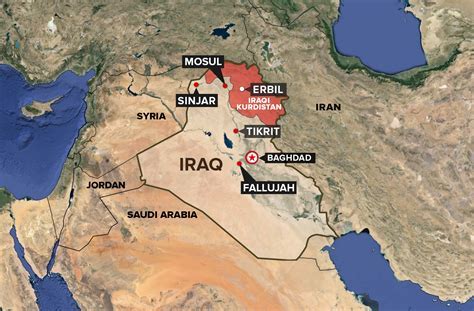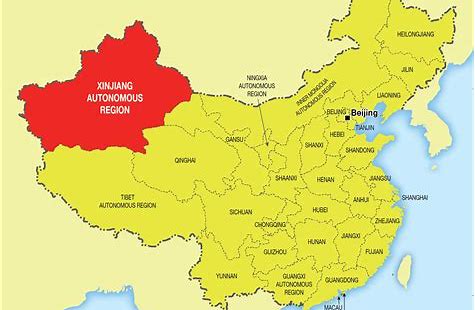
Nationalism is a multifaceted concept that has shaped human history and continues to influence global affairs today. At its core, nationalism is about loyalty to one’s nation, a sentiment that can evoke powerful emotions and drive significant political movements. But what exactly is nationalism, and why does it resonate so deeply within us? Let’s delve into the complexities of this modern phenomenon to better understand its roots, expressions, and impacts.
Defining nationalism
The term “nationalism” can mean different things to different people. Broadly speaking, nationalism is both a political ideology and a psychological attachment. Politically, it advocates for the alignment of national identity and state governance. Psychologically, it involves a deep connection to a common culture, language, and territory.
Political ideology
As a political ideology, nationalism seeks to unite a people who share common characteristics into a single, sovereign state. This idea is rooted in the belief that the nation and the state should be congruent, meaning that the political boundaries of a state should align with the cultural and ethnic boundaries of a nation.
- Nation-State: The nation-state is the ideal form of political organization for nationalists. It is a state that represents and governs a specific nation, ensuring that the cultural and political aspirations of that nation are fulfilled.
- Sovereignty: Nationalists believe in the sovereignty of their nation, meaning they support the nation’s right to self-governance and independence from external control.
Psychological attachment
Nationalism is also a psychological phenomenon, involving a deep emotional attachment to one’s nation. This attachment is often rooted in shared cultural, linguistic, and territorial bonds.
- Common Culture: Nationalism often emphasizes a shared culture, including traditions, customs, and values that define the identity of a nation.
- Language: Language plays a crucial role in fostering national identity. It serves as a medium for communication and a symbol of unity among people who share the same linguistic heritage.
- Territory: A specific geographical territory is another key element of nationalism. The land that a nation occupies holds historical and symbolic significance, reinforcing the connection between the people and their homeland.
The power of symbols and rituals
Nationalism has the remarkable ability to mobilize individuals and communities through shared symbols and rituals. These elements foster a collective identity and a sense of solidarity among people, strengthening their loyalty to the nation.
Symbols
Symbols such as flags, anthems, and emblems play a crucial role in expressing national identity and unity. They serve as visual and auditory representations of the nation, evoking pride and a sense of belonging.
- Flags: The national flag is one of the most potent symbols of nationalism. It represents the ideals, history, and aspirations of the nation, often becoming a rallying point for national pride and patriotism.
- Anthems: National anthems are another powerful symbol. These songs encapsulate the values and emotions of the nation, often evoking strong feelings of unity and loyalty when sung or heard.
Rituals
Rituals, such as national holidays, ceremonies, and parades, reinforce the bonds of nationalism by bringing people together in shared experiences. These events celebrate the nation’s history, achievements, and values, fostering a sense of collective identity and pride.
- National Holidays: Celebrating national holidays, such as Independence Day or Republic Day, allows people to commemorate significant events in their nation’s history and express their patriotism.
- Ceremonies and Parades: Ceremonial events and parades are public displays of national unity and pride. They provide opportunities for people to come together, celebrate their shared identity, and reaffirm their loyalty to the nation.
Nationalism in the Indian context
India’s experience with nationalism is unique and multifaceted. The struggle for independence from British colonial rule played a significant role in shaping Indian nationalism. Figures like Mahatma Gandhi, Jawaharlal Nehru, and Subhas Chandra Bose became symbols of the national movement, inspiring millions to rally for freedom.
Historical roots
The roots of Indian nationalism can be traced back to the late 19th and early 20th centuries when intellectuals and leaders began to advocate for self-governance and independence. The Indian National Congress, founded in 1885, became the primary platform for expressing nationalist aspirations.
- Anti-Colonial Struggle: The anti-colonial struggle was a unifying force in Indian nationalism. The fight against British rule galvanized people from diverse backgrounds, fostering a collective identity centered on the goal of independence.
- Cultural Renaissance: The Indian cultural renaissance, characterized by a revival of interest in Indian history, literature, and art, also contributed to the growth of nationalism. It helped people reconnect with their cultural heritage and develop a sense of pride in their identity.
Post-independence nationalism
After gaining independence in 1947, India faced the challenge of nurturing a sense of national identity in a diverse and pluralistic society. The Indian Constitution, adopted in 1950, enshrined the principles of democracy, secularism, and unity in diversity, laying the foundation for a modern nation-state.
- Unity in Diversity: India’s nationalism is unique in its emphasis on unity in diversity. The country is home to a multitude of languages, cultures, and religions, and Indian nationalism seeks to celebrate this diversity while fostering a sense of national unity.
- Secularism: Secularism is a key component of Indian nationalism. It ensures that all religions are treated equally and that the state does not favor any particular religion, promoting social harmony and inclusivity.
The dual nature of nationalism
Nationalism is a double-edged sword. While it can unite people and inspire positive change, it can also lead to exclusion, conflict, and aggression. Understanding the dual nature of nationalism is crucial for appreciating its complexities and navigating its challenges.
Positive aspects
Nationalism can have several positive impacts on society and politics.
- Social Cohesion: Nationalism fosters a sense of belonging and solidarity among people, promoting social cohesion and unity.
- Political Mobilization: Nationalist movements can mobilize individuals and communities to advocate for their rights, fight for independence, and bring about political change.
- Cultural Preservation: Nationalism can help preserve and promote cultural heritage, ensuring that traditions, languages, and customs are passed down through generations.
Negative aspects
However, nationalism can also have negative consequences.
- Exclusion and Discrimination: Nationalism can lead to the exclusion and discrimination of minority groups, as the emphasis on a single national identity may marginalize those who do not fit the dominant cultural or ethnic mold.
- Conflict and Aggression: Intense nationalist sentiments can fuel conflicts and aggression, both within and between nations. Nationalist fervor can escalate into xenophobia, intolerance, and even violence.
- Authoritarianism: Nationalism can sometimes be co-opted by authoritarian leaders to consolidate power, suppress dissent, and promote a narrow, exclusionary vision of the nation.
Conclusion
Nationalism is a complex and multifaceted phenomenon that evokes strong emotions and shapes political landscapes. It is both a unifying force and a potential source of conflict, capable of inspiring profound loyalty and intense division. By understanding the various dimensions of nationalism, we can better appreciate its impact on our world and navigate its challenges with greater insight and sensitivity.







